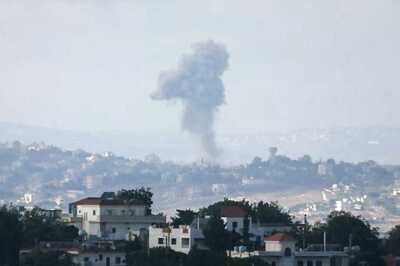
views
Analysts and industry representatives gave different assessments of the potential dangers after an explosion blew the roof off one of Japan's nuclear power plants damaged in Friday's massive earthquake.
It underlined the fluid and unpredictable situation at the Fukushima Daiichi facility north of Tokyo, from which the Japanese government said radiation leaked.
The critical issue is what has happened or is happening with the reactor fuel - which contains almost all the radioactivity in the plant - and whether it is damaged.
"We don't know enough about what the status of the fuel is in the reactor core," Mark Hibbs of the Carnegie Endowment for International Peace said. "The issue is whether the core is uncovered, whether the fuel is breaking up or being damaged, or whether the fuel is melting."
What happened at the plant?
The blast at the 40-year-old Daichi 1 reactor came as plant operator Tokyo Electric Power Co (Tepco) worked to reduce pressures in the core after the total loss of power needed to keep water circulating to prevent it from overheating.
It led to fears of a disastrous meltdown at the plant, which automatically shut down after the quake, even though the government insisted that radiation levels were low.
"The most probable (cause of the explosion) is the coolant, particularly if it's water, can overheat and turn to steam more rapidly than it was designed to cope with," said nuclear fuel technology professor Timothy Abram at Manchester University.
The cause and exact location of the blast still needs to e established, said nuclear physics professor Paddy Regan at the University of Surrey. "So far it looks like it's not the reactor core that's affected, which would be good news."
The World Nuclear Association, a London-based industry body, said the blast was probably due to hydrogen igniting and that this was unlikely to cause a big accident by itself.
"It is obviously an hydrogen explosion," communications director Ian Hore-Lacy said. "If the hydrogen has ignited, then it is gone, it doesn't pose any further threat."
How serious could it be?
Views differ. Stratfor, a risk consultancy, said the blast appeared to have caused a reactor meltdown, but this was contradicted by others who dismissed any comparisons with the 1986 Chernobyl nuclear disaster in Ukraine.
"The reactor fuel appears to have at least partially melted, and the subsequent explosion has shattered the walls and roof of the containment vessel," Stratfor said in an analysis.



















Comments
0 comment